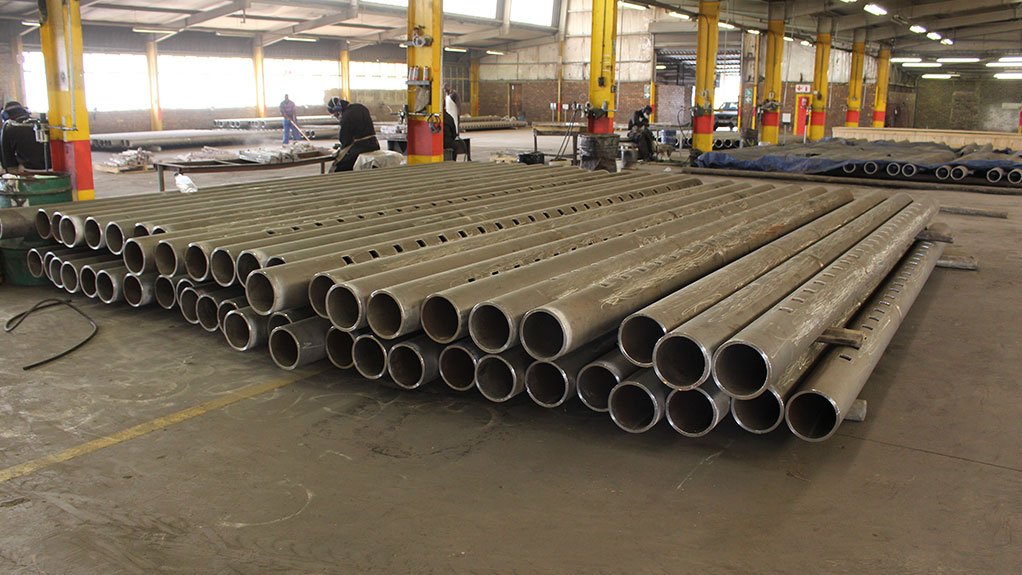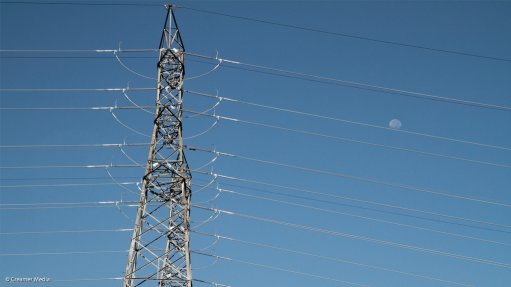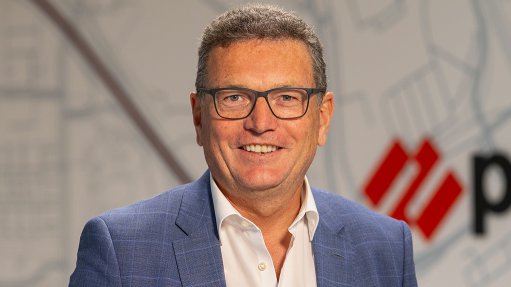Capital investment programmes can boost industry


CASTING OPPORTUNITY Capital investment programmes, such as the Strategic Integrated Projects, will provide opportunities for the casting industry to supply cast and centrifugally cast products
Specialist foundry Steloy Castings will complete a multimillion-dollar order for stanchion support assemblies this month, which will be sent to a petrochemicals refinery in China.
“The order comprised an assembly of castings, the bulk of which consists of tubes, which are used in the stanchions. These tubes were centrifugally spun- cast at Steloy Castings’ Chamdor facility, in Krugersdorp,” says Steloy Castings marketing and sales director Wynand Labuschagne.
Steloy Castings supplies cast products to a myriad of industries, including the steel industry and petrochemicals industries. Centrifugally spun cast products are supplied to the petrochemicals industry for application in the fired-heater environment. Centrifugally spun cast tubes are produced in heat-resistant alloys and are used for the manufacture of furnace rollers (used by local steel and stainless steel mills).
The high-alloy-steel centrifugal casting facility in Krugersdorp is the only one of its kind in Africa that can manufacture the tubes, notes Labuschagne.
The Petro-China stanchion order had a lead time of 12 months and comprised a significant portion of the total production at Chamdor, says Labuschagne, adding that this order was the third in a series of orders that were all exported. The first multimillion-dollar order was delivered to a US-based company, which then supplied the items to a Saudi Arabian oil company, Saudi Aramco, while the second order was also delivered to a US-based company, which was destined for Colombia.
In addition, Steloy Castings expects more similar orders this year, adds Labuschagne, one of which is to be exported to Europe.
Traditionally, stanchions were produced from bars and beams, but it is easier to manufacture them from centrifugally cast tubes, giving cost savings of about 30%.
Advantages of the centrifugally cast tubes include a more uniform structure and better load bearing, he notes, adding that centrifugally cast tubing is not a mass production process, as only a single tube can be produced at a time, and the tube can be made from a variety of alloys which can be cast, such as carbon steel,exotic stainless steels or heat-resistant steel and stainless alloys.
Another advantage of the centrifugal cast process is the dual structure of some alloys when cast into metal dies, called the ‘chill effect’, which allows for higher wear capacity on the outside and better heat dispersion on the inside, adds Labuschagne.
Although the centrifugally cast products for the petrochemicals industry have a design life of 100 000 hours, or 10 to 11 years of continuous operations, Labuschagne says, some petrochemicals plants, which use the centrifugally cast products in the furnaces, have been able to use the products continuously for much longer periods.
About 70% of products and castings produced in the centri- fugal cast facility are exported, and the stanchions, which include centrifugally cast tubes, are predominantly used in furnaces in the petrochemicals industry, Labuschagne says.
Although the bulk of Steloy’s centrifugally cast products are exported, currency and oil price fluctuations are a few key challenges that the spun-cast industry faces, says Labuschagne.
The current oil price and fluctuating currencies have enabled the refineries to upgrade and expand their equipment, thus requiring cast products, says Labuschagne.
Further, Labuschagne comments that cast-product imports are an additional challenge for the industry, as continuous importing reduces the volumes and demand for locally manu- factured products and any expansion opportunities for local suppliers, he adds.
Although the casting industry has been experiencing a phase of reduced activity, owing to a decrease in capital investment projects in the past few years, there is huge potential for growth in the local industry, says Labuschagne.
“The proposed railway investment and expansion programmes will provide more business opportunities and room for growth, as foundries and the steel industry will form the basis of the supply chain and will provide the materials for the programmes,” says Labuschagne.
The multibillion-rand rail investment programme, which forms part of the National Development Plan, comprises the fleet renewal of the State-owned Passenger Rail Agency of South Africa through the acquisition of 7 224 cars and 1 200 trains over a 20-year period, including an initial batch of 3 600 cars over a ten-year period. The programme includes track and signal overhauling.
As most of the trains’ and loco- motives’ suspension components are manufactured using casting processes, Labuschagne points out, the programme and subsequent rail projects will provide an opportunity for the local casting industry to supply these castings to the projects.
Another project, which will improve the casting industry’s outlook and possibly aid its expansion, is the proposed construction of the new oil refinery at the Coega industrial development zone, in the Eastern Cape, adds Labuschagne.
The proposed oil refiery, called Project Mthombo, will be developed by South African national oil company PetroSA and Chinese national oil company Sinopec, with feasibility studies of the refinery having started last year. The project is part of one of 18 Strategic Infrastructure Projects, which were established by the Presidential Infrastructure Coordinating Commission to address South Africa’s infrastructure needs.
“When the refinery is com- pleted, casting companies can supply more castings to the petrochemicals industry, owing to its expansion,” concludes Labuschagne.
Article Enquiry
Email Article
Save Article
Feedback
To advertise email advertising@creamermedia.co.za or click here
Press Office
Announcements
What's On
Subscribe to improve your user experience...
Option 1 (equivalent of R125 a month):
Receive a weekly copy of Creamer Media's Engineering News & Mining Weekly magazine
(print copy for those in South Africa and e-magazine for those outside of South Africa)
Receive daily email newsletters
Access to full search results
Access archive of magazine back copies
Access to Projects in Progress
Access to ONE Research Report of your choice in PDF format
Option 2 (equivalent of R375 a month):
All benefits from Option 1
PLUS
Access to Creamer Media's Research Channel Africa for ALL Research Reports, in PDF format, on various industrial and mining sectors
including Electricity; Water; Energy Transition; Hydrogen; Roads, Rail and Ports; Coal; Gold; Platinum; Battery Metals; etc.
Already a subscriber?
Forgotten your password?
Receive weekly copy of Creamer Media's Engineering News & Mining Weekly magazine (print copy for those in South Africa and e-magazine for those outside of South Africa)
➕
Recieve daily email newsletters
➕
Access to full search results
➕
Access archive of magazine back copies
➕
Access to Projects in Progress
➕
Access to ONE Research Report of your choice in PDF format
RESEARCH CHANNEL AFRICA
R4500 (equivalent of R375 a month)
SUBSCRIBEAll benefits from Option 1
➕
Access to Creamer Media's Research Channel Africa for ALL Research Reports on various industrial and mining sectors, in PDF format, including on:
Electricity
➕
Water
➕
Energy Transition
➕
Hydrogen
➕
Roads, Rail and Ports
➕
Coal
➕
Gold
➕
Platinum
➕
Battery Metals
➕
etc.
Receive all benefits from Option 1 or Option 2 delivered to numerous people at your company
➕
Multiple User names and Passwords for simultaneous log-ins
➕
Intranet integration access to all in your organisation


















